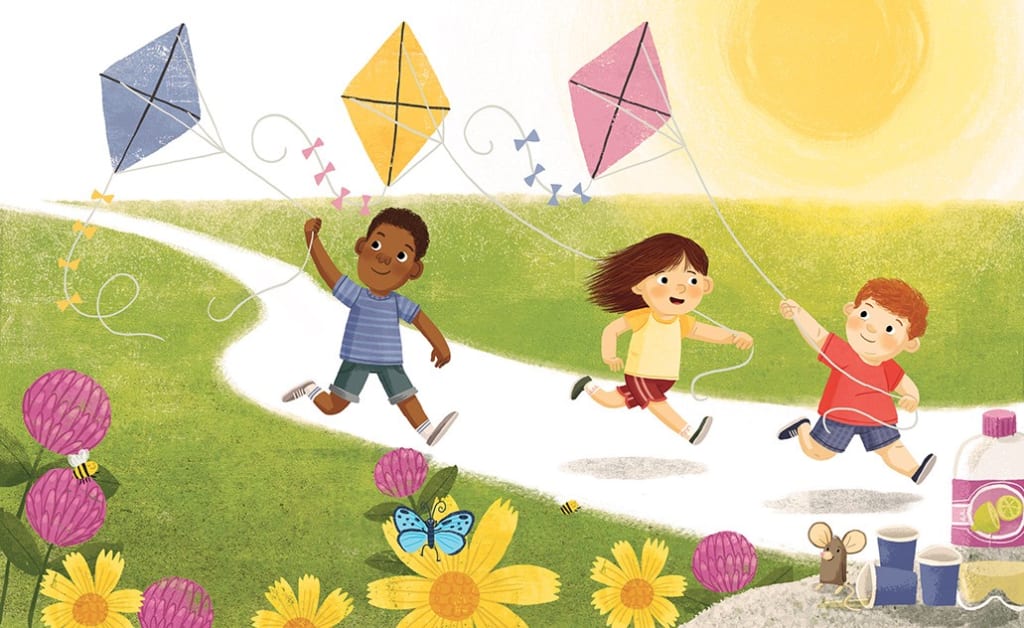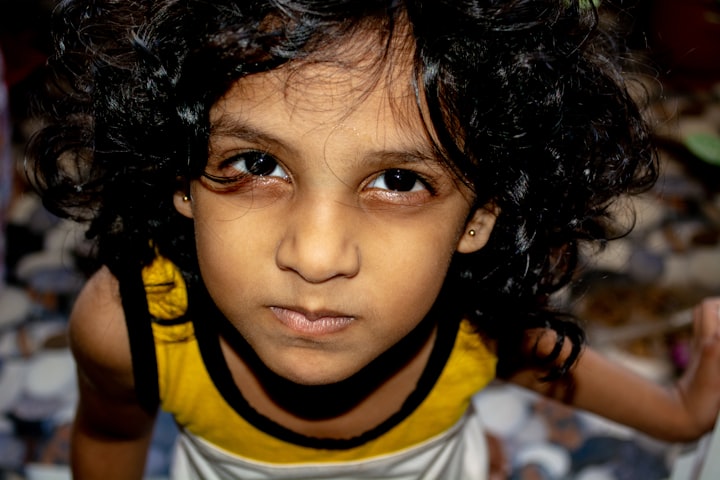The Quick Guide to Raising a ‘Likeable’ Kid
It's super easy

'If you want your children to turn out well, spend twice as much time with them and half as much money'
-Abigail Van Buren
It is one of the biggest questions in social science. How much our future life or attributes is affected or determined by who we are earlier on is often depicted in quotes by Ancient philosophers and theologians like Aristotle, “Give me a child until he is seven, and I will show you the man.” The second is from psychologist William James’s The Principles of Psychology, “In most of us, by the age of thirty, the character has set like plaster, and will never soften again.”
The answer to being likable with given what we now know about genes, environment, and history, is that there is some but not complete stability over the life of who we are. Of course, genes play a significant role and are the same throughout your entire life. Genes do influence everything about you, but one thing that’s not the same is your experiences.
If you have a timid kid and guess what they will be like when they are 35 years old. You can guess there’s a better chance that they’re going to be shyer than average, but you’re also going to be wrong in many cases. Psychological development is similarly not always as steady and gradual as one might think.
One thing to recognize about development is that it’s not steady and at the same pace throughout. You can have spurts. You can grow 4 inches over the summer, then a plateau, and then another spurt. This is relevant because you could have a sudden leap forward where this kid becomes more considerate of other people. If you allow for that kind of spurty development, it gives you a little bit of sanity as a parent. So, childhood deficit, whether emotional, intellectual, or social, can be a factor, but you can impede effective parenting.
Some childhood behaviors and traits are known to be temporary or fleeting.
You’ve probably gone over to a couple’s house, and there is a bratty two-year-old that you can’t stand. Do you hope your children don’t display those attributes? That is an age where kids struggle with emotion regulation and delayed gratification and therefore are having temper tantrums, eating things they weren’t supposed to eat, and touching things they weren’t supposed to touch all the time. There is a reason they call it the terrible twos, and for some other kids the terrible threes, but developmentally, most of those kids are just going to grow out of that. Their prefrontal cortex which is the brain's area right before your forehead will evolve and develop and help kids control their emotions better and better, so it can be argued that being bratty is developmental normalcy.
You cannot raise your children as your parents raised you because your parents raised you for a world that no longer exists
The popularity effect amongst kids and best practices
Mitch Prinstein, who is a terrific psychologist, knows a lot about this topic. He wrote a book called Finding Happiness and Success in a World That Cares Too Much About the Wrong Kinds of Relationships. Mitch Prinstein’s thesis is really just that there are two kinds of popular, the pecking order popularity, which is basically the kids on top of the social hierarchy usually displayed in movies to be popular and mean. Another type of popularity that he argues is the good kind of popular: the likable person.
Most parents are probably thinking about what they can do to make their child more likable.
The parenting style that has by far the most scientific evidence of being a good parenting style is called the authoritative parenting style. Not to be confused with authoritarian parenting, where they are very demanding and deficient in warmth. It’s basically not allowing your kids to develop their opinions or perspectives in life. The parents are not very respectful of the kid’s autonomy.
Authoritative parenting is the combination of demanding like authoritarian parenting but is very warm and respectful of the kid's autonomy.
For some of us who came from strict authoritarian backgrounds, we were controlled and had no autonomy. We were told what to do and expected to do it promptly. But in the modern-day, we probably raise our children differently.
Our internal compasses want to go back to the circumstances in which we were raised where there was less autonomy, but it feels out of step with our kids' social cohort.
It is a struggle with autonomy because it’s really hard not to feel like you know best, and that’s the part of authoritative parenting that is easy to get wrong. Still, in terms of being likable, I would also give another recommendation: to model what you’re asking your kids to be.
For example, part of likeability is to be empathic, watch for other people’s emotions, and be interested in how other people feel.
Shelly Gable wrote an article about responsiveness, not only in parenting but also in anyone in a relationship, so this applies if you have kids. The idea is that what we are often looking for in a relationship with another person is for them to be responsive. She said that really means three things:
- The first is to really see and understand how the other person feels, thinks, or likes.
- The second one is to respect them, and that’s respect for autonomy. So as a parent, can you respect what your kids think about the world even if it’s different from yours?
- The third one is warm and caring.
When I think about parents who want to raise kids who are likable in the best sense of the word, if you do those three things aforementioned, that’s half of parenting. Be a good role model and try to do these responsive and yet appropriately demanding things.
Advice for aspiring parents
I wouldn’t let a dinner party with an especially bratty two-year-old or 15 years old dissuade you from having kids because, in most instances, children grow out of those stages with the help of parents who are good role models and authoritative.
It would help if you didn’t focus on the disadvantages even though it should be weighed in your decision to have children. It’s so much work to raise children, but the greatest joys are your kids. The joy that they achieved a goal or just funny things they say and realize how much you love them because human beings have a great capacity to love.
There are so many reasons why people have children. There’s the biological imperative that we can’t understand. People do it for tradition, religion, love, there’s also seeing everyone else doing it, but once you’ve decided and had these kids, it’s the world’s greatest experiment.
There’s data all over. There are about 7.7 billion people on earth, so, theoretically, we should already have every answer, but instead, we individually tinker in our respective workshops.
Some people subscribe to the best practices, and some of us are fumbling in the dark and having a fantastic time figuring out how to do it except for the times when we are not.
Another thing, as new parents to look out for, is what teachers and doctors say because they’ve seen it a thousand times before and have just started. You could be very biased.
If you don’t have the patience, you could consider getting a pet too. It takes commitment, too but is less complicated.
******** **************** **********************
Like what you read? Send me a gift below to help contribute to my next adventure!
You can also sign up for my mailing list here: https://bit.ly/3el7KKa
About the Creator
Blessing Akpan
I am a photographer of thoughts, let me capture your soul.






Comments
There are no comments for this story
Be the first to respond and start the conversation.